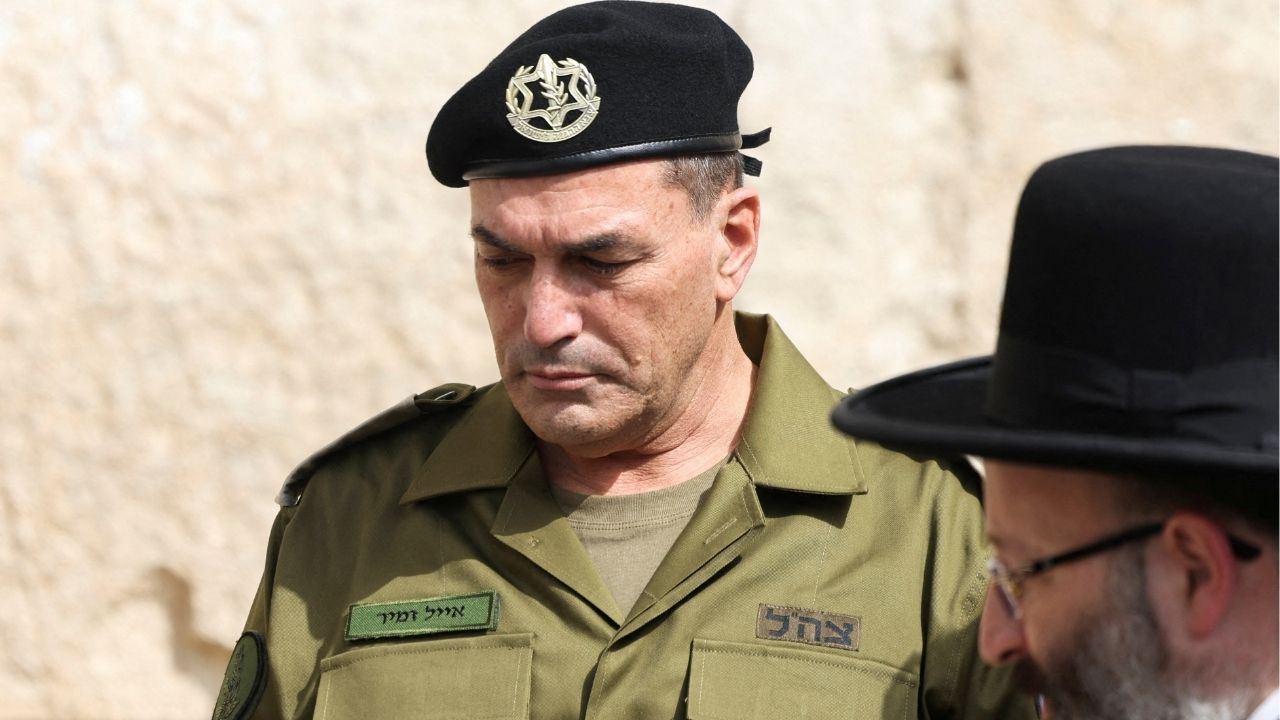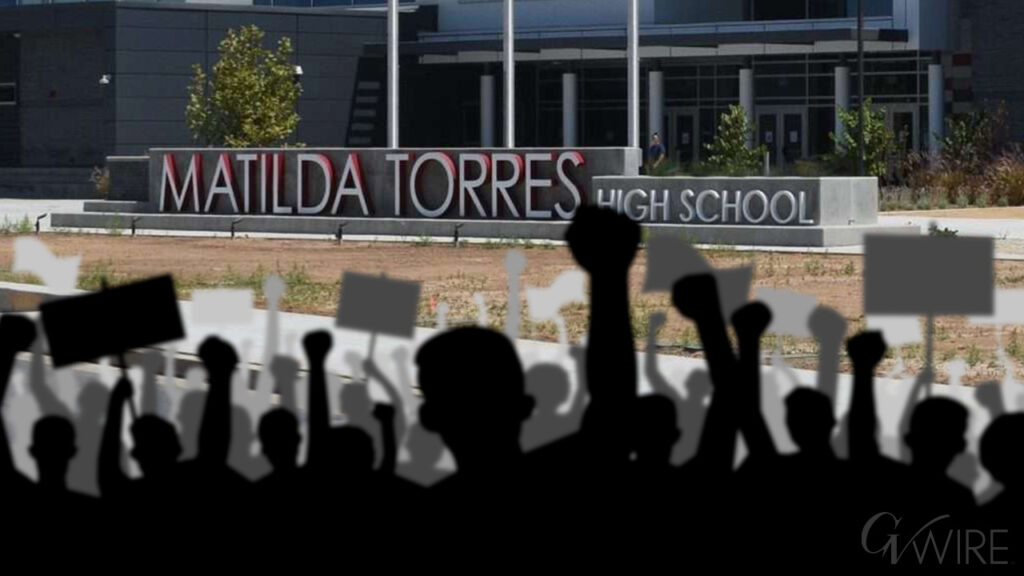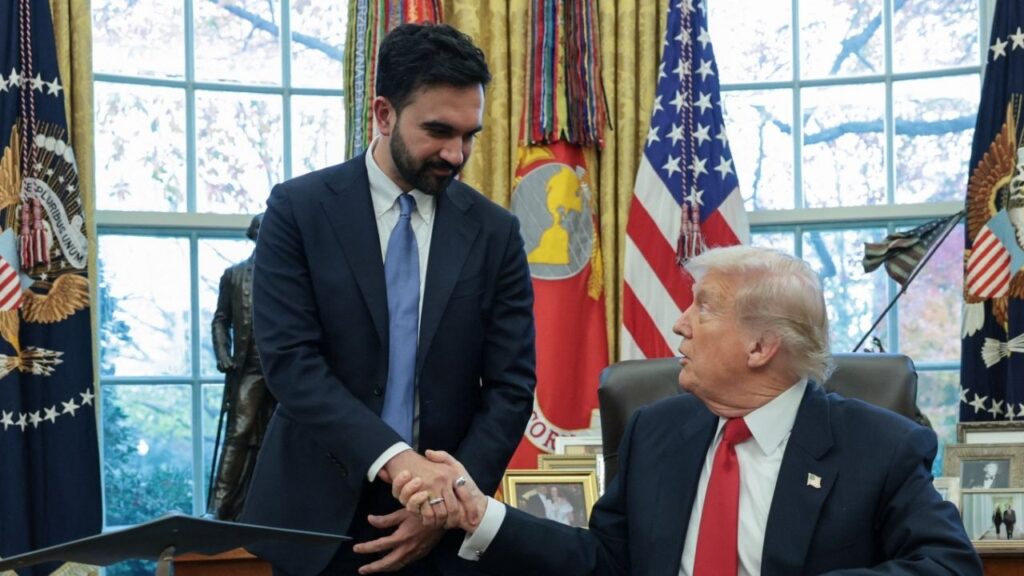The new Chief of the General Staff, Lieutenant General Eyal Zamir, visits the Western Wall, Judaism's holiest prayer site, in Jerusalem's Old City, March 5, 2025. (Reuters File)
Share
|
Getting your Trinity Audio player ready...
|
Israel’s military chief has pushed back against Benjamin Netanyahu’s plans to seize areas of Gaza it doesn’t already control, three Israeli officials said, as the prime minister faces increasing pressure over the war both at home and abroad.
During a tense, three-hour meeting on Tuesday, Eyal Zamir, the military chief of staff, warned the prime minister that taking the rest of Gaza could trap the military in the territory, which it withdrew from two decades ago, and could lead to harm to the hostages being held there, the sources briefed on the meeting said.
The Israeli military says it already controls 75% of Gaza after nearly two years of war, which began when militant group Hamas attacked southern Israeli communities in October 2023. It has repeatedly opposed imposing military rule, annexing the territory, and rebuilding Jewish settlements there – policies advocated by some government members.
Netanyahu is under intense international pressure to reach a ceasefire in the coastal enclave, which has been reduced to rubble in the fighting. Most of the population of about 2 million has been displaced multiple times and aid groups say residents are on the verge of famine.
The U.N. has called reports about a possible expansion of Israel’s military operations in Gaza “deeply alarming” if true.
The military, which accuses Hamas of operating amongst civilians, has at times avoided areas where intelligence suggested hostages were held and former captives have said their captors threatened to kill them if Israeli forces approached.
Netanyahu told Zamir that so far the military had failed to bring about the release of the hostages, the officials said, speaking on the condition of anonymity. Most of those freed so far came about as a result of diplomatic negotiations.
Defense Minister Israel Katz wrote on X Wednesday that the military chief has both the right and the duty to voice his opinion, but said that the military would carry out the government’s decisions until all war objectives are achieved.
The prime minister’s office confirmed the meeting with Zamir on Tuesday but declined to comment further and the military did not respond to a request for comment.
The prime minister is scheduled to discuss military plans for Gaza with other ministers on Thursday. A fourth source said Netanyahu wants to expand military operations in Gaza to put pressure on Hamas.
Netanyahu, who in May said that Israel would control all of Gaza, leads the most right-wing coalition government in Israel’s history and some of his key partners have in the past threatened to quit if the government ended the war.
Following a 40-minute meeting with the prime minister on Wednesday, opposition leader Yair Lapid told reporters he had advised Netanyahu that the public was not interested in continuing the war and that a full military takeover would be a very bad idea.
A public poll last month by Israel’s Channel 12 also showed support for a diplomatic deal that would end the war and secure the release of the hostages.
Emaciated Hostages
There are 50 hostages still being held in Gaza, of whom at least 20 are believed to be alive. Videos released by Hamas and Palestinian Islamic Jihad, another militant group in Gaza, last week of two extremely emaciated captives triggered international condemnation.
Close to 200 Palestinians have died of starvation in Gaza since the war began, about half of them children, according to Gaza’s health ministry. More than 20 died on Wednesday when a truck believed to be carrying food overturned as it was swarmed by a desperate crowd, according to local health authorities.
The latest ceasefire talks in Qatar broke down last month. Hamas insists any deal must lead to a permanent end to the war, while Israel accuses the group of lacking sincerity about giving up power afterward and must be defeated.
An expansion of the military offensive in heavily populated areas would likely be devastating.
“Where will we go?” said Tamer Al-Burai, a displaced Palestinian living at the edge of Deir Al Balah in central Gaza.
“Should people jump into the sea if the tanks rolled in, or wait to die under the rubble of their houses? We want an end to this war, it is enough, enough,” he told Reuters by phone.
Overextended
The war in Gaza has also overextended Israel’s military, which has a small standing army and has had to repeatedly mobilise reservists. It is not clear if more reservists would be needed to expand operations and take more territory.
The military continued to carry out air strikes across Gaza on Wednesday, killing at least 135 people in the past 24 hours, the Gaza health ministry said, with the death toll since the beginning of the conflict now at more than 61,000, mostly civilians, it says.
About 1,200 people were killed, including more than 700 civilians, and 251 hostages taken to Gaza after the Hamas attack on Israel, according to Israeli tallies.
—
(Reporting by Alexander Cornwell in Tel Aviv and Nidal al-Mughrabi; Editing by Sharon Singleton)
RELATED TOPICS:
Categories

Saint Agnes Names New Vice President of Operations


















